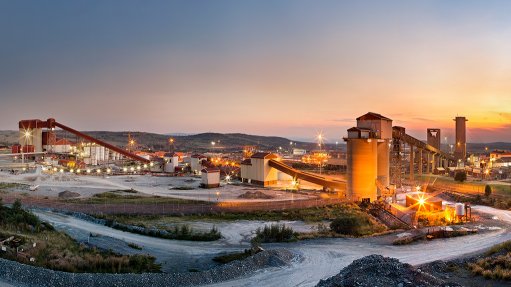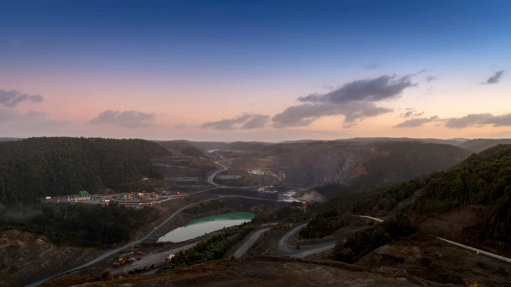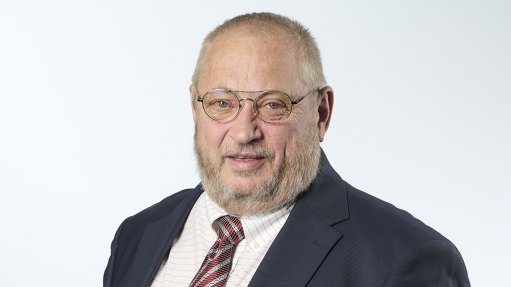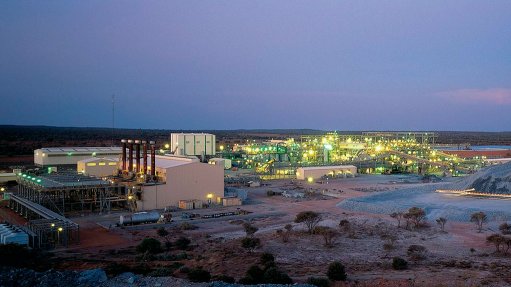Space mining of iron-ore not viable for local markets
The supply and demand of iron-ore and precious metals is globally well balanced; therefore, the mining of these metals in space for use on earth is not viable, notes Council for Scientific and Industrial Research Centre for Mining Innovation strategic research manager Dr Declan Vogt.
His comment is a response to space mining companies Deep Space Industries and Planetary Resources declarations of their intentions to mine the asteroids.
Vogt explains that space mining will not result in the mining of metals at a more affordable rate than mining on earth. “Placing hundreds of tons of precious metals on earth would crash market prices and render valuable minerals worthless,” he notes, adding that there are enough minerals on earth that can be mined.
Compared with exorbitant space mining costs, iron-ore is not costly to produce on earth and is used in enormous quantities, with supply of the metal meeting global demand.
Consulting engineering and project implementation specialist Hatch Goba mining engineer Michael Neale concurs with Vogt, noting that the mining of space resources to be sold in earth’s metal markets will not be viable in the near future. “The intent of initial space mining should be to support space development, as the value return for earth will start as novelties, such as meteorites and moon dust, which already sell at a high price.
”Processing ore into metals is not easy and is even less so in space. “We need a much bigger presence in space before this will become a reality. We need to earn our place in space by mining the simpler elements to sustain ourselves and then, when we have mastered infrastructure, energy and simple mining, we escalate to metals,” Neale notes.
“Although there are unlimited deposits of iron-ore and an abundance of most resources available – to mind-boggling degrees – in space, they are extremely inconvenient to mine.”
Vogt highlights that the market for valuable metals is small and that large amounts of metals from space would dramatically reduce the price and dramatically increase the cost of mining, as these metals will have to be transported from orbit to earth.
Mining the Sky author John Lewis states in his book, that an asteroid with a diameter of one kilometre has a mass of about two-billion tons and that about one-million asteroids of this size exist in the solar system. He further declares that one of these asteroids contains 30-million tons of nickel, 1.5-million tons of metal cobalt and 7 500 t of platinum.
Subsequently, Vogt highlights that the real value of space mining is in providing resources for space exploration, such as the metals and fuels needed to build machinery for space mining.
“Space vehicles and technologies for space exploration require large amounts of iron, which is the most commonly used metal for steel and vehicle manufacturing. Therefore, mining metals in space will be more viable and cost effective for space exploration,” he adds.
Big Pill to Swallow
“All civilisations become either space faring or extinct, and space faring requires space mining,” Neale adds to the words of author Carl Sagan, adding that space mining is not the ultimate goal, but spreading the human presence in a sustainable manner in space is.
“Space mining is currently a very big pill to swallow and understandably so. To make it a reality, we need to break its development down into small pieces and make sure every piece is worth the investment,” he explains.
Future asteroid prospector Planetary Resources is innovating orbital telescopes, which has an immediate benefit to society. In addition, space technologies development companies, such as SpaceX, are successfully developing commercial transport devices, which will enable commercially economic travel into space, Neale explains.
He adds that asteroid rights for mining are still an issue that needs to be resolved among the countries interested in space mining. “Currently, there are only treaties to guide what will happen, but no laws. My understanding is that the first come, first serve rule will apply,” he notes.
“Eventually, laws to govern the mining of space resources will be required, but establishing international legislation is a slow process and for something that is yet to happen, it will take even longer.”
Further, Neale points out that the realisation of space travel and development requires extensive funding. “The biggest potential for space mining lies in volatiles, from the moon and asteroids, for fuel. Fuel is a major cost driver in space missions and occupies much space. The Apollo missions could have used rockets about eight times smaller if they had fuel sources in space,” he notes.
Neale adds that the biggest challenges preventing mining in space is that it is expensive and largely unknown. “We haven’t mined in micro gravity and don’t completely understand mining and processing in the extreme environment of space.”
Vogt agrees, adding that the process of getting mining resources into space will be costly and the machinery required to mine in space has not yet been developed.
However, he points out that the technology needed is not unattainable and, given the opportunity, could easily be developed.
“Currently, there is much interest in space mining, with only a few people undertaking commercial ventures in this realm. Most of the interest lies in the academic fields, as the technologies needed for space mining are pushing the boundaries of robotics and of mining mineral processing,” Vogt concludes.
Comments
Press Office
Announcements
What's On
Subscribe to improve your user experience...
Option 1 (equivalent of R125 a month):
Receive a weekly copy of Creamer Media's Engineering News & Mining Weekly magazine
(print copy for those in South Africa and e-magazine for those outside of South Africa)
Receive daily email newsletters
Access to full search results
Access archive of magazine back copies
Access to Projects in Progress
Access to ONE Research Report of your choice in PDF format
Option 2 (equivalent of R375 a month):
All benefits from Option 1
PLUS
Access to Creamer Media's Research Channel Africa for ALL Research Reports, in PDF format, on various industrial and mining sectors
including Electricity; Water; Energy Transition; Hydrogen; Roads, Rail and Ports; Coal; Gold; Platinum; Battery Metals; etc.
Already a subscriber?
Forgotten your password?
Receive weekly copy of Creamer Media's Engineering News & Mining Weekly magazine (print copy for those in South Africa and e-magazine for those outside of South Africa)
➕
Recieve daily email newsletters
➕
Access to full search results
➕
Access archive of magazine back copies
➕
Access to Projects in Progress
➕
Access to ONE Research Report of your choice in PDF format
RESEARCH CHANNEL AFRICA
R4500 (equivalent of R375 a month)
SUBSCRIBEAll benefits from Option 1
➕
Access to Creamer Media's Research Channel Africa for ALL Research Reports on various industrial and mining sectors, in PDF format, including on:
Electricity
➕
Water
➕
Energy Transition
➕
Hydrogen
➕
Roads, Rail and Ports
➕
Coal
➕
Gold
➕
Platinum
➕
Battery Metals
➕
etc.
Receive all benefits from Option 1 or Option 2 delivered to numerous people at your company
➕
Multiple User names and Passwords for simultaneous log-ins
➕
Intranet integration access to all in your organisation


















